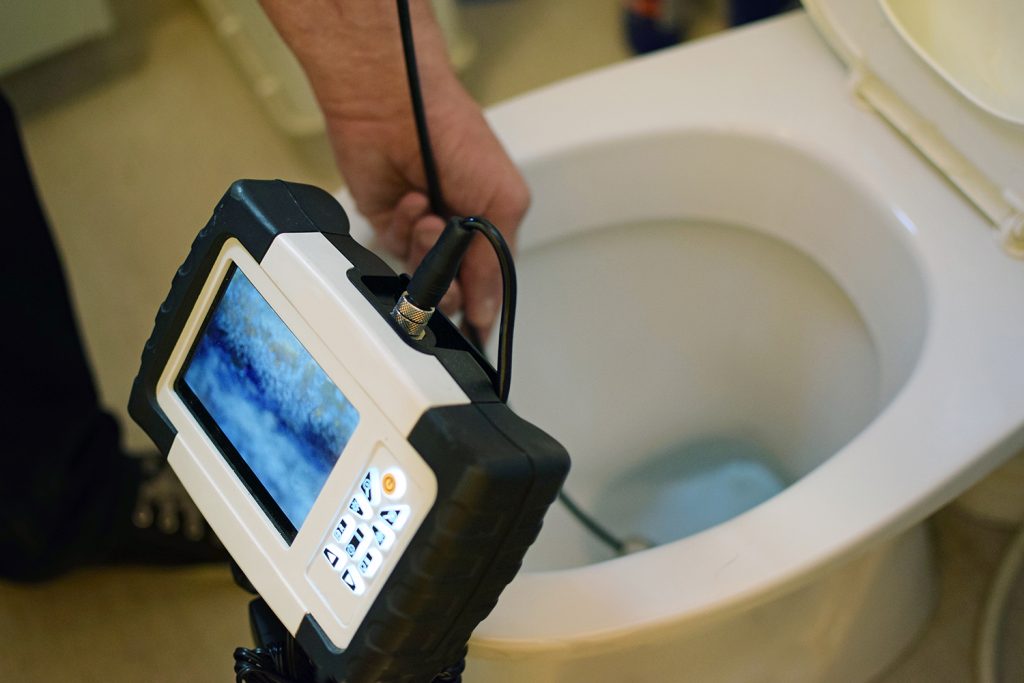For many homeowners, sewer backups can be a huge source of frustration. Not only are they incredibly inconvenient and disruptive to your day-to-day life, but oftentimes resolving such an issue requires hiring a professional plumber. But before you reach for the phone book to find a local pro, take some time to consider why these issues might have surfaced in the first place! In this blog post we’ll discuss common causes of recurring sewage backups so that you can better diagnose what’s going on beneath your feet. With an understanding of the underlying problem, it will be easier than ever to target potential solutions and stop all those backups from plaguing your life once again.
Identify the Problem
A clogged drain is never a pleasant experience, but identifying the root of the problem is the first step in getting things flowing again. If you’re experiencing a drainage issue, it’s important to check for blockages in the line and examine drain pipes for cracks or clogs. These pesky obstructions can cause major headaches and even lead to potential damage to your home. So, don’t let a clogged drain ruin your day – take the time to investigate and solve the problem. Your plumbing system (and your sanity) will thank you.
Check Your Ventilation System
Have you checked your ventilation system recently? It’s important to make sure it’s working properly, not just for your own comfort but also for the health of your sewer line. If your ventilation system isn’t working properly, it could be allowing air to enter your sewer line, which can cause some pretty nasty problems. You might notice strange smells or even gurgling sounds coming from your drains. So, don’t ignore your ventilation system – take the time to make sure it’s in good shape and keep your plumbing happy and healthy.
Inspect Your Plumbing Fixtures
Your plumbing fixtures may not be the most glamorous part of your home, but they play a critical role in keeping your living space clean and functional. One sign that something may be amiss with your pipes or drains is slow drainage. If you notice that water is taking longer than usual to flow down the sink or shower drain, it could be a sign that there’s a blockage somewhere in the system. Another common clue that you should inspect your plumbing fixtures is a strange odor emanating from your drains. This unpleasant scent could be a sign that water isn’t flowing properly, leading to drain backups and clogs. By keeping a close eye, and nose, on your plumbing fixtures, you can detect and address issues before they lead to a more serious problem.
Clear Out the Clogs
Clearing out clogs in your pipes can seem like a daunting task, but it’s an important one to ensure that your plumbing system is functioning properly. Debris, like tree roots and other obstructions, can cause backups and damage to your pipes over time. By taking the time to remove these clogs, you can prevent costly repairs and enjoy a smoothly running plumbing system. Don’t let a clogged pipe put a damper on your day – take action to clear out the clogs and keep your plumbing in top shape.
Have a Professional Take a Look
Dealing with plumbing issues can be frustrating and exhausting. When you’ve exhausted all DIY measures and your sewer line is still giving you trouble, it may be time to call in a professional, like those at Smooth Waters Plumbing. A plumber can inspect your sewer line thoroughly and identify any underlying issues that you may not be aware of. With their expertise in this field, they can make necessary repairs quickly and efficiently. Avoid further complications and let the professionals take over. Your sewer line will thank you!

Prevent Future Problems
Your sewer line is a critical component of your home’s plumbing system. It carries away all the wastewater from your sinks, showers, and toilets, ensuring that your home stays clean, healthy, and comfortable. However, if you don’t take proper care of it, your sewer line can become blocked, leading to a host of unpleasant and expensive problems. To avoid these issues, it’s essential to implement regular maintenance on your sewer line. By doing this, you can keep it clear of blockages and buildup and ensure that it functions correctly. So why wait? Take action now to keep your sewer line in top condition and prevent future problems from occurring.
In conclusion, when it comes to sewer backups, open the lines of communication early. Identify any potential blocked pipes as soon as possible and check your plumbing fixtures for signs of a problem. Make it a point to maintain your sewer line regularly in order to avoid future issues. If all else fails, calling a professional can help diagnose and address the issue quickly and effectively. Avoid overlooking blockages or cracks in your sewer line, as this could lead to serious damage that could cost thousands of dollars more than if you had taken proper preventive action beforehand.

